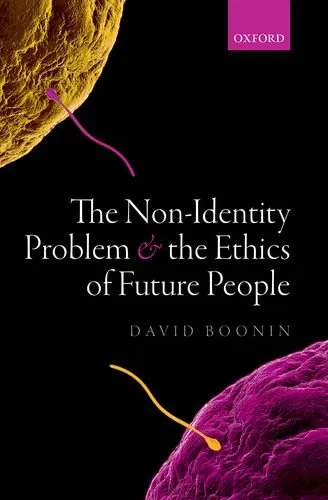Philosophy's future : the problem of philosophical progress
4.5
Reviews from our users

You Can Ask your questions from this book's AI after Login
Each download or ask from book AI costs 2 points. To earn more free points, please visit the Points Guide Page and complete some valuable actions.کتاب های مرتبط:
Introduction
Welcome to Philosophy's Future: The Problem of Philosophical Progress, a thought-provoking exploration of one of the most pressing questions confronting philosophy as a discipline: can philosophy make genuine progress akin to the natural sciences, or is it inherently different in its aims and methods? Written with clarity and intellectual rigor, this book considers what progress means in philosophical inquiry, evaluates why some critics doubt that philosophy advances meaningfully, and ultimately delves into what this means for the future of the field. Whether you are a seasoned philosopher, a student of philosophy, or someone simply curious about how human thought evolves, this book offers a unique and critical perspective on philosophy's role in humanity's intellectual landscape.
A Detailed Summary of the Book
In this book, I tackle core questions about the capacity of philosophy to achieve meaningful progress. The text begins by examining the nature of philosophical problems and their resistance to the kind of definitive solutions typically found in fields like mathematics or physics. Through historical analysis, I argue that while philosophy has achieved certain milestones and refinements—such as clarifying key concepts and creating frameworks for ethical reasoning—it often struggles with the same fundamental questions that have been posed for centuries. These include inquiries into free will, the nature of reality, morality, consciousness, and the limits of human knowledge.
The book proceeds to explore why this resistance to closure may not be a weakness, but rather a feature that highlights philosophy's unique contributions. Rather than solving problems in a final and unequivocal way, philosophy prompts critical reflection on the evolving assumptions and paradigms that underlie human thought. Chapters are dedicated to philosophical methods, interdisciplinary influences, and the challenge of making philosophy relevant in our age of rapid scientific and technological advances.
Ultimately, Philosophy's Future presents a nuanced argument that the "problem of philosophical progress" is also an opportunity—for philosophers to rethink their aims, integrate their ideas more dynamically with other disciplines, and better articulate their societal value.
Key Takeaways
- Philosophy may not progress in definitive ways, but it still provides critical tools for understanding fundamental issues.
- The inability to resolve certain philosophical debates may stem from the complexity and openness of the human condition.
- Philosophy thrives at the intersection of multiple disciplines, such as science, psychology, and the humanities.
- Reevaluating the goals of philosophy can help preserve its relevance in an increasingly scientific and technological world.
- Philosophical progress can be seen in how it refines questions, challenges assumptions, and influences human cultural evolution over time.
Famous Quotes from the Book
"Philosophy is not impoverished because it fails to close its debates. Rather, its richness lies in the room it leaves for individual reflection and ongoing dialogue."
"Progress in philosophy must not be measured by the tidy resolution of problems but by the depth and breadth of human understanding it fosters."
"If philosophy is struggling to define its place in the modern world, it is because the world itself is changing—and philosophy must adapt along with it."
Why This Book Matters
This book matters because the future of philosophy depends on the discipline's ability to grapple with its perceived shortcomings and articulate its strengths. As a field often misunderstood as abstract or esoteric, philosophy's relevance is questioned in today's relentlessly pragmatic environment. Yet, we live in a time where philosophical tools are sorely needed to address profound ethical dilemmas, conceptual breakthroughs, and social tensions brought about by advances in science, technology, and global interconnectedness.
By asking tough questions about philosophical progress, Philosophy's Future encourages readers to adopt a more balanced perspective. It challenges the notion that philosophy is stagnant while urging philosophers themselves to rise to the occasion of making their work accessible and impactful. For anyone interested in the evolving trajectory of human thought, this book offers an indispensable roadmap to understanding how philosophy can continue to matter in the modern age.
Free Direct Download
You Can Download this book after Login
Accessing books through legal platforms and public libraries not only supports the rights of authors and publishers but also contributes to the sustainability of reading culture. Before downloading, please take a moment to consider these options.
Find this book on other platforms:
WorldCat helps you find books in libraries worldwide.
See ratings, reviews, and discussions on Goodreads.
Find and buy rare or used books on AbeBooks.













